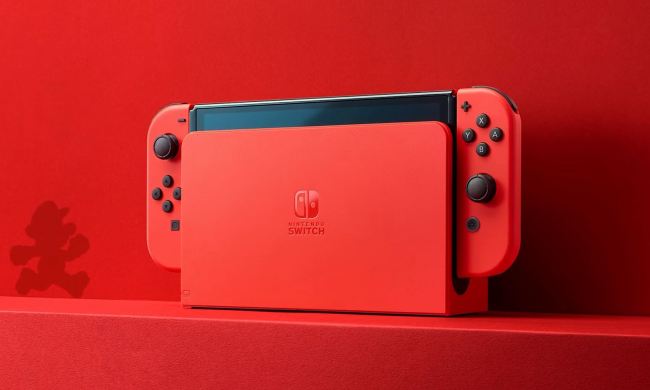A recent Nintendo Switch Online update added a handful of NES and SNES games that were met with disappointment from Switch owners. This sparked a discussion about the value of Nintendo’s subscription service and — in a more general sense — the company’s business model for offering classic games on the Switch.
Digital Trends spoke with Steve Bailey, Omdia’s principal games analyst, to shed some light on why Nintendo doesn’t seem to be interested in selling older, fan-favorite games to consumers. Bailey explains that Nintendo Switch Online’s classic games aren’t so much a selling point as they are a perk.
A difference in philosophies
To set the stage, here’s what subscribers get with Nintendo Switch Online: The service allows Switch owners to play online similar to PS Plus or Xbox Live Gold. Nintendo Switch Online only costs $20 per year, which is significantly less than the price of its competitors. The Nintendo Switch service also includes access to a variety of NES and SNES games via a library that continues to evolve over time.
While some fans see this is the driving reason to subscribe to Nintendo Online, Bailey sees it as working the other way around.
“Nintendo probably sees games in the Nintendo Online catalog as a sweetener for its Online subscription, rather than a primary monetization model for its fan-favorite titles,” Bailey tells Digital Trends.
5 titles are coming to the #SNES & #NES – #NintendoSwitchOnline collection on 5/26!
Super NES – Nintendo Switch Online:
・Super Baseball Simulator 1.000
・Caveman Ninja (also known as Joe & Mac)
・Magical Drop2
・Spanky's QuestNES – Nintendo Switch Online:
・Ninja JaJaMaru-kun pic.twitter.com/OzYmF7lIYk— Nintendo of America (@NintendoAmerica) May 19, 2021
That philosophy seems evident in Nintendo’s recent update, which includes obscure games like Super Baseball Simulator 1.000, Caveman Ninja, Magical Drop2, and Spanky’s Quest for the SNES, and Ninja JaJaMaru-kun for the NES — all of which are playable on Switch through the Nintendo Switch Online service.
Fans weren’t happy following the announcement. While it is nice to be able to play some of these classics via Nintendo Switch Online, fans argue that games like Ninja JaJaMaru-kun just aren’t cutting it, especially when so many beloved titles like Earthbound or Super Mario RPG aren’t available to play on Switch. The community has made it clear that it would be willing to purchase fan-favorite games outright if Nintendo simply offered the ability to do so.
This sparked the age-old discussion of “if Nintendo wants to make money off its older games, why doesn’t it sell them to consumers?” Nintendo fans are vocal about their frustrations with the company’s business practices, particularly when it comes to the distribution of older classics. Fans argue that Nintendo has one of the richest libraries of games, and it should be playable (or available to purchase) on modern hardware. Bailey explains why Nintendo can operate in such a seemingly erratic manner.
“In general, Nintendo can afford what seems like eccentric behavior because it’s in a unique position: No one else has game IP this valuable,” says Bailey.
A looming change?
What’s fascinating is that Bailey thinks Nintendo could begin pushing the online services toward the end of the life cycle of the Nintendo Switch, once the install base is much higher.
“It’s currently focused on a hardware-first approach,” Bailey says. “Everything is about driving people onto the hardware foremost. Driving people into online services (such as a content-library subscription) could be better timed toward the end of the hardware generation, when it’s looking to move players online as a transitional steppingstone to what comes after Switch.”
So, it’s possible Nintendo will start to focus more on its subscription service after it has reached a certain number of Nintendo Switch sales (which is currently sitting at around 84 million units sold). This could be a great time to start adding more fan-favorite games from the SNES and N64 eras — and possibly beyond.
What fans view as problematic, Nintendo doesn’t seem to view as an issue at all — at least according to Bailey. “These are billion-dollar brands [Nintendo is] working with,” Bailey said. “So they’ll probably move at their own pace. There must be so much fierce, ongoing internal debate at Nintendo, regarding the direction to take things, that we never see (even if, on the surface, the result looks like inaction).”
While this might not entirely satisfy all of our curiosity about Nintendo’s odd business practices, it at least can explain some of the company’s decisions when it comes to its older games. Ultimately, Nintendo doesn’t offer many of its beloved classics through a subscription service because it doesn’t have to. At least not right now.



